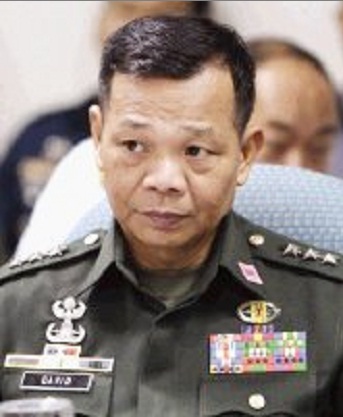Immigration men probed for OFWs in Syria
No shenanigans on my watch.
Immigration Commissioner Ricardo David Jr. on Sunday made this vow amid reports from an antihuman trafficking group led by Vice President Jejomar Binay that scores of Filipinos had been surreptitiously leaving for Syria even as thousands of others were attempting to flee the strife-torn Middle Eastern country.
David said in a statement he was fully supporting the investigation of the Inter-Agency Council Against Trafficking (Iacat) against Bureau of Immigration personnel who had allegedly helped facilitate the departure of undocumented Filipino workers for Syria despite a government ban.
“We assure the public that this bureau under my watch will not tolerate these shenanigans. Employees who connive with human traffickers and illegal recruiters will be dismissed from the service,” he said.
David also reported that his bureau had provided the council with the names of the supposedly erring personnel, whose departure stamps were found on the passports of the Filipinos who were recently repatriated from Syria.
The bureau’s antifraud division certified that the stamps were genuine, he said.
Airport immigration officials had also assisted the investigative body in interviewing the repatriated Filipinos upon arrival, he added.
Binay has announced that 14 immigration employees at Ninoy Aquino International Airport had been asked for a show-cause order for failing to enforce the deployment ban on overseas Filipino workers (OFWs) to Syria.
The Department of Foreign Affairs declared in December last year that Syria remained under crisis alert level 4, which effected a continuing mandatory repatriation of Filipinos from the troubled country.
So far, the government has returned 1,531 Filipinos from Syria since the conflict began. Of this number, only 179 were documented.
The Department of Labor and Employment said there were 1,375 more OFWs—out of the 3,053 repatriation applicants—who were being repatriated.
The government lamented that despite the ban and the repatriation efforts, more Filipinos were still arriving in Syria due to illegal recruitment and human trafficking.
David said the bureau was not easing its anticorruption drive at the airport, citing a periodic rotation in assignments of immigration officers and the recall of personnel registering derogatory records or those who were subject of administrative complaints.
He also warned employees deployed in airports that stiff disciplinary action would be taken against them if they facilitated the departure of a human trafficking victim and if they intentionally failed to encode names of departing passengers in the bureau’s computer database.
